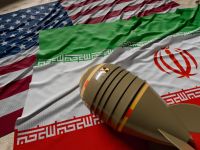Although Algeria, Iraq, Yemen, Sudan and Syria may have some limited forms of equity markets, due to near complete state monopoly over the economy, a meaningful role for the private sector has so far been excluded. Yet these countries are attempting at liberalizing their economies and reforming underlying corporate legislation.
For example the fact that Syria does not have an official stock exchange has not prohibited it from establishing an active gilt securities market to finance domestic public borrowing. Syria has also given positive signals that it is keen on reforming its corporate legislation in terms of diversifying the types of its companies. In late 1997 for example, draft Article 337 of the Syrian Commerce Code was debated in order to introduce holding companies on par with Articles 232-236 of the 1989 Jordanian Companies Act or the Lebanese legislative degree No. 45 of 24 of June 1983 on holding companies.
In a similar vein, Yemen has also undergone recent changes in its investment legislation in order to reduce bureaucratic barriers and widen the areas in which foreigners can invest. Changes made on Yemen's Foreign Investments Law took place in late 1999. In this context it is estimated that Yemen attracted an estimated RY6.4 billion ($1=0,0063RY) in 1999 in foreign investment, compared to and RY4.8 billion in 1998. It is also contemplating establishing an official securities market.
For its part, Iraq has opened a limited stock exchange in 1992, regulated by the Baghdad Stock Exchange Law No. 24 of 1991. In January 1997, new listing and admission regulations were promulgated (in accordance with Art 26 of Law No. 24 of 1991). As to revamping underlying corporate legislation, Iraq in September 1997 promulgated the new Companies Law No. 21 of 1997. The new law identifies four types of business associations: public, private (limited liability), partnership and sole trading. It came into effect on Dec. 28, 1998.
As was mentioned in the previous article, Arab countries were divided into four groups. The third group consists of the Gulf Cooperation Council. These are Saudi Arabia (it has no formal bourse. Informal share trading dates to 1935 and its informal capital markets are the largest in the Arab world in terms of their capitalization), Kuwait (Amiri Decree Regulating the Kuwait Stock Exchange Market, 1983. Promulgated in the Official Gazette No. 1492, dated Aug. 14, 1983) Bahrain (Royal Decree No. 4 for the year 1987 established the Bahrain Stock Exchange. It officially began trading in June 1989), Qatar (in 1995, Qatar promulgated a law establishing the Doha Stock Exchange which started operating two years later in May 1997), United Arab Emirate (on Feb. 1, 2000 the UAE promulgated a securities law establishing two official exchanges in Dubai and Abu Dhabi) and Oman (Art. 3 of the Royal Decree Promulgating the Capital Market Law repeals all conflicting provisions with the 1998 Capital Market Law).
These capital-surplus Arab countries enjoy operational (albeit occasionally limited) securities markets, stable economies and freely convertible currencies. The fact that equity trading takes place in the GCC countries does not however mean that all these countries have official bourses regulated by specialized securities acts. For example, as has been mentioned above while the United Arab Emirate has promulgated its first ever securities act on Feb. 1, 2000, Saudi Arabia until today still does not have a securities act, despite having the largest `unofficial' Arab securities market, which by the second quarter of 1999 was capitalized at $44.2 billion. — (Jordan Times)
By Lu'ayy Minwer Al Rimawi
The writer is an author and researcher on Arab capital markets regulation at the London School of Economics.
© 2000 Mena Report (www.menareport.com)







